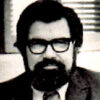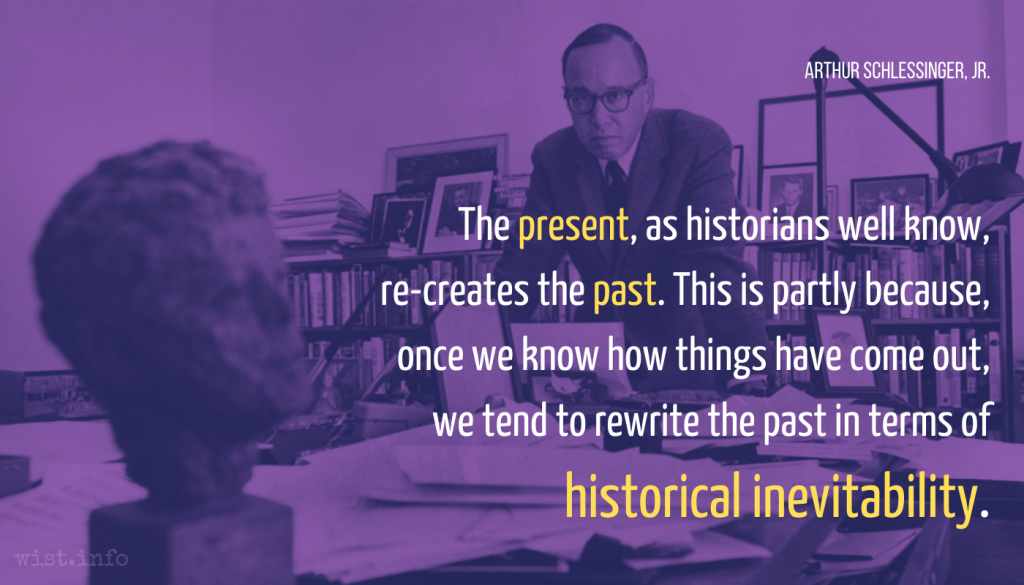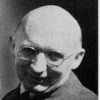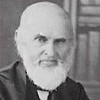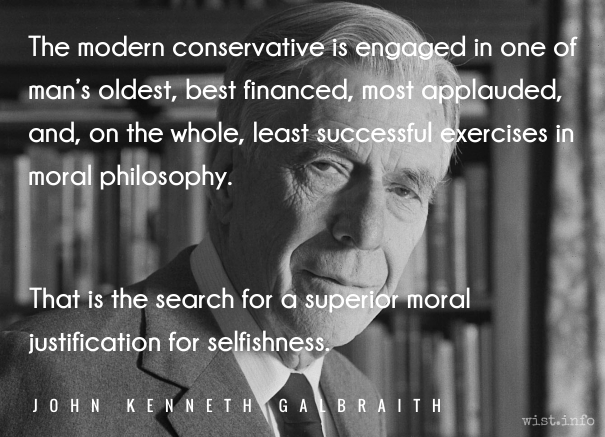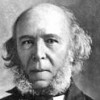All things […] are best to those who know no better.
Samuel Butler (1835-1902) English novelist, satirist, scholar
“Ignorance”
(Source)
Full passage:The less Judgment any Man ha's the Better he is perswaded of his owne abilities, because he is not capable of understanding anything beyond it, and all things how mean so ever, are best to those who know no better: for beside the naturall affection that he has for himself, which go's very farre, the less he is able to improve and mend his Judgment, the higher value he sets upon it, and can no more correct his own false opinions, when he is at his height, than outgrow his own Stature.
Quotations about:
perspective
Note not all quotations have been tagged, so Search may find additional quotes on this topic.
No one has stepped twice into the same river. But did anyone ever step twice into the same book?
Marina Tsvetaeva (1892-1941) Russian poet
“Pushkin and Pugachev [Пушкин и Пугачев]” (1937)
See Heraclitus.
The reason we struggle with insecurity is because we compare our behind-the-scenes with everyone else’s highlight reel.
Steven Furtick (b. 1980) American pastor
Speech, Willow Creek Global Leadership Summit (church gathering) (11 Aug 2011)
History, like beauty, depends largely on the beholder, so when you read that, for example, David Livingstone discovered the Victoria Falls, you might be forgiven for thinking that there was nobody around the Falls until Livingstone arrived on the scene.
Desmond Tutu (1931-2021) South African cleric, Anglican Archbishop of Cape Town, Nobel Laureate
“Fortieth Anniversary of the Republic,” speech (1981)
See Richard Cumberland.
Righteous Indignation: Your own wrath as opposed to the shocking bad temper of others.
Elbert Hubbard (1856-1915) American writer, businessman, philosopher
The Roycroft Dictionary (1914)
(Source)
Comparison, more than Reality, makes Men happy or wretched.
Thomas Fuller (1654-1734) English physician, preacher, aphorist, writer
Gnomologia: Adages and Proverbs, #1133 (1732)
(Source)
The present, as historians well know, re-creates the past. This is partly because, once we know how things have come out, we tend to rewrite the past in terms of historical inevitability.
In whatsoever Condition thou art, still ask thyself, What would my blessed Savior have thought, said, and done in this Case.
Thomas Fuller (1654-1734) English physician, preacher, aphorist, writer
Introductio ad Prudentiam, # 693 (1725)
(Source)
"What Would Jesus Do?"
For such is the nature of men that howsoever they may acknowledge many others to be more witty, or more eloquent or more learned, yet they will hardly believe there be many so wise as themselves; for they see their own wit at hand, and other men’s at a distance.
Therefore all things whatsoever ye would that men should do to you, do ye even so to them: for this is the law and the prophets.
The Bible (The New Testament) (AD 1st - 2nd C) Christian sacred scripture
Matthew 7:12 (KJV)
Variants:
- Popularly, "Do unto others as you would have them do unto you."
- NIV: "So in everything, do to others what you would have them do to you, for this sums up the Law and the Prophets."
- NRSV: "In everything do to others as you would have them do to you; for this is the law and the prophets."
- TEV: "Do for others what you want them to do for you: this is the meaning of the Law of Moses and of the teachings of the prophets."
Note: The "Golden Rule" has been expressed in many ways by many religious and philosophical teachers. Several of these in WIST are or will be cross-referenced to this quotation (as trackbacks), not to lend it primacy, but because this is the most well-known formulation of it in the Western world, and to simplify the cross-referencing to one central point.
The faults of others console us in our own.
Paul Eldridge (1888-1982) American educator, novelist, poet
Maxims for a Modern Man, #2178 (1965)
(Source)
For it is the characteristic of folly, to have eyes for the faults of others, and blindness for its own.
[Est enim proprium stultitiae aliorum vitia cernere, oblivisci suorum.]
Marcus Tullius Cicero (106-43 BC) Roman orator, statesman, philosopher
Tusculan Disputations [Tusculanae Disputationes], Book 3, ch. 30 (3.30) / sec. 73 (45 BC) [tr. Otis (1839)]
(Source)
(Source (Latin)). Alternate translations:
For it is the property of Folly, to look upon other mens Failings, and to forget their own.
[tr. Wase (1643)]
For it is the peculiar characteristic of folly to discover the vices of others, forgetting its own.
[tr. Main (1824)]
For it is the peculiar characteristic of folly to perceive the vices of others, but to forget its own.
[tr. Yonge (1853)]
It is the peculiar quality of a fool to perceive the faults of others and to forget his own.
[Source (1882)]
It is the property of folly to see the faults of others, to forget its own.
[tr. Peabody (1886)]
This is just how foolish people behave: they observe the faults of others and forget their own.
[tr. Graver (2002)]
It is a trait of fools to perceive the faults of others but not their own.
When I was a boy of fourteen, my father was so ignorant I could hardly stand to have the old man around. But when I got to be twenty-one, I was astonished at how much the old man had learned in seven years.
Poverty must have many satisfactions, else there would not be so many poor people.
BERNIE: But I did okay, didn’t I? I mean I got, what, fifteen thousand years. That’s pretty good, isn’t it? I lived a pretty long time.
DEATH: You lived what anybody gets, Bernie. You got a lifetime. No more. No less. You got a lifetime.
Neil Gaiman (b. 1960) British author, screenwriter, fabulist
Sandman, Book 7. Brief Lives, # 43 “Part 3” (1992-11)
(Source)
Pity cureth Envy.
Thomas Fuller (1654-1734) English physician, preacher, aphorist, writer
Gnomologia: Adages and Proverbs, #3876 (1732)
(Source)
I have always found that so-called bad people gain in one’s estimation when one gets to know them better, and good people decline.
Georg C. Lichtenberg (1742-1799) German physicist, writer
Aphorisms, Notebook G, #25 (1779-83) [tr. Hollingdale (1990)]
(Source)
LILY: I worry no matter how cynical you become,
it’s never enough to keep up.Jane Wagner (b. 1935) American humorist, writer, director
The Search for Signs of Intelligent Life in the Universe, Part 1 (1985) [perf. Lily Tomlin]
(Source)
Variant: "No matter how cynical you get, it is impossible to keep up."
The Christian determination to find the world ugly and bad has made the world ugly and bad.
[Der christliche Entschluss, die Welt hässlich und schlecht zu finden, hat die Welt hässlich und schlecht gemacht.]
Friedrich Nietzsche (1844-1900) German philosopher and poet
The Gay Science [Die fröhliche Wissenschaft], Book 3, § 130 (1882) [tr. Hill (2018)]
(Source)
Also known as La Gaya Scienza, The Joyful Wisdom, or The Joyous Science.
(Source (German)). Alternate translations:
The Christian resolution to find the world ugly and bad, has made the world ugly and bad.
[tr. Common (1911)]
The Christian resolve to find the world ugly and bad, has made the world ugly and bad.
[tr. Kaufmann (1974)]
The Christian decision to find the world ugly and bad has made the world ugly and bad.
[tr. Nauckhoff (2001)]
But, by all thy nature’s weakness,
Hidden faults and follies known,
Be thou, in rebuking evil,
Conscious of thine own.John Greenleaf Whittier (1807–1892) American poet and abolitionist
“What the Voice Said,” st. 15, ll. 57-60 (1847)
(Source)
The modern conservative is not even especially modern. He is engaged, on the contrary, in one of man’s oldest, best financed, most applauded, and, on the whole, least successful exercises in moral philosophy. That is the search for a superior moral justification for selfishness. It is an exercise which always involves a certain number of internal contradictions and even a few absurdities. The conspicuously wealthy turn up urging the character-building value of privation for the poor. The man who has struck it rich in minerals, oil, or other bounties of nature is found explaining the debilitating effect of unearned income from the state. The corporate executive who is a superlative success as an organization man weighs in on the evils of bureaucracy. Federal aid to education is feared by those who live in suburbs that could easily forgo this danger, and by people whose children are in public schools. Socialized medicine is condemned by men emerging from Walter Reed Hospital. Social Security is viewed with alarm by those who have the comfortable cushion of an inherited income. Those who are immediately threatened by public efforts to meet their needs — whether widows, small farmers, hospitalized veterans, or the unemployed — are almost always oblivious to the danger.
John Kenneth Galbraith (1908-2006) Canadian-American economist, diplomat, author
“Wealth and Poverty,” speech, National Policy Committee on Pockets of Poverty (13 Dec 1963)
Galbraith used variations on this quote over the years.
- The above quotation was from a speech given, that was then entered into the Congressional Record, Vol. 109, Senate (18 Dec 1963).
- This material was reworked into an article "Let us begin: An invitation to action on poverty," in Harper's (March 1964), which was in turn again entered into the Congressional Record, Vol. 110 (1964).
- One of the last is most often cited: "The modern conservative is engaged in one of man’s oldest exercises in moral philosophy, that is the search for a superior moral justification for selfishness. It is an exercise which always involves a certain number of internal contradictions and even a few absurdities. The conspicuously wealthy turn up urging the character-building value of privation for the poor." ["Stop the Madness," Interview with Rupert Cornwell, Toronto Globe and Mail (6 Jul 2002)]
It must be remembered that we have only heard one side of the case. God has written all the books.
Samuel Butler (1835-1902) English novelist, satirist, scholar
The Note-Books of Samuel Butler, “An Apology for the Devil” (1912)
Full text.
When a man is in doubt about this or that in his writing, it will often guide him if he asks himself how it will tell a hundred years hence.
Samuel Butler (1835-1902) English novelist, satirist, scholar
The Note-Books of Samuel Butler, “Writing for a Hundred Years Hence” (1912)
Full text.
Every one thinks his sacke heaviest.
George Herbert (1593-1633) Welsh priest, orator, poet.
Jacula Prudentum, or Outlandish Proverbs, Sentences, &c. (compiler), # 748 (1640 ed.)
(Source)
When I play with my cat, who can say that it is not she amusing herself with me more than I with her?
[Quand je me jouë à ma chatte, qui sçait, si elle passe son temps de moy plus que je ne fay d’elle?]
Michel de Montaigne (1533-1592) French essayist
“Apology for Raymond Sebond [Apologie de Raimond de Sebonde]” (1588–1592), Essays, Book 2, ch. 12 (1595) [tr. Ives (1925)]
(Source)
(Source (French)). Alternate translations:
When I am playing with my Cat, who knowes whether she have more sporte in dallying with me, then I have in gaming with hir?
[tr. Florio (1603)]
When I play with my cat, who knows whether puss is not more diverted with me than I am with puss?
[tr. Cotton (1686)]
When I play with my cat who knows whether I do not make her more sport than she makes me?
[tr. Cotton/Hazlitt (1877)]
When I play with my cat, who knows if I am not a pastime to her more than she is to me.
[tr. Frame (1943)]
When I play with my cat, how do I know that she is not passing time with me rather than I with her?
[tr. Screech (1987)]
A book is a mirror: if an ape looks into it, an apostle is unlikely to look out.
Georg C. Lichtenberg (1742-1799) German physicist, writer
Aphorisms, Notebook F, #17 (1776-79) [tr. Hollingdale (1990)]
(Source)
This is nearly mirrored by Notebook E, # 49 (1775-76), "A book is a mirror: if an ape looks into it an apostle is hardly likely to look out."
Alternate translations:
A book is a mirror: when a monkey looks in, no apostle can look out.
[tr. Mautner and Hatfield (1959)]
A book is a mirror: if an ape looks into it, an apostle is unlikely to look out.
[tr. Tester (2012)]
We too often forget that not only is there “a soul of goodness in things evil,” but very generally also, a soul of truth in things erroneous.
Herbert Spencer (1820-1903) English philosopher, naturalist
First Principles, Pt. I “The Unknowable,” ch. 1 “Religion and Science”” (1862)
(Source)
Quoting Shakespeare.
Once again prosperous and successful crime goes by the name of virtue; good men obey the bad, might is right and fear oppresses law.
Seneca the Younger (c. 4 BC-AD 65) Roman statesman, philosopher, playwright [Lucius Annaeus Seneca]
Hercules Furens, Part 1, l.255 [Amphitryon] [tr. Miller (1917)]
(Source)
Alt. trans.: "Successful and fortunate crime is called virtue."
Nonsense wakes up the brain cells. And it helps develop a sense of humor, which is awfully important in this day and age. Humor has a tremendous place in this sordid world. It’s more than just a matter of laughing. If you can see things out of whack, then you can see how things can be in whack.
Dr. Seuss (1904-1991) American author, illustrator [pseud. of Theodor Geisel]
“Author Isn’t Just a Cat in the Hat,” interview by Miles Corwin, Los Angeles Times (1983-11-27)
(Source)
Great minds are related to the short span of time wherein they live as are large buildings to the narrow plot of ground on which they stand. Thus large buildings are not seen to their full extent because we are too close to them.
[Zu der kurzen Spanne Zeit, in der sie leben, verhalten sich die großen Geister wie große Gebäude zu einem engen Plage, auf dem sie stehn. Man sieht nämlich diese nicht in ihrer Größe, weil man zu nahe davor steht.]
Arthur Schopenhauer (1788-1860) German philosopher
Parerga and Paralipomena, Vol. 2, ch. 20 “On Judgement, Criticism, Approbation, and Fame [Über Urtheil, Kritik, Beifall und Ruhm],” § 242 (1851) [tr. Payne (1974)]
(Source)
(Source (German)). Alternate translation:
Compared with the short span of time they live, men of great intellect are like huge buildings, standing on a small plot of ground. The size of the building cannot be seen by anyone, just in front of it.
[tr. Saunders (1890)]
Great minds are related to the brief span of time during which they live as great buildings are to a little square in which they stand: you cannot see them in all their magnitude because you are standing too close to them.
[tr. Hollingdale (1970)]
If we should hear it reported of the Eastern People, that their usual Drink is a Liquor which flies up into the Head, makes them mad, and sets them a-vomiting, we should be apt to lift up our Hands and say, These sottish Barbarians!
[Si nous entendions dire des Orientaux qu’ils boivent ordinairement d’une liqueur qui leur monte à la tête, leur fait perdre la raison et les fait vomir, nous dirions: «Cela est bien barbare.»]
Jean de La Bruyère (1645-1696) French essayist, moralist
The Characters [Les Caractères], ch. 12 “Of Opinions [Des Jugements],” § 24 (12.24) (1688) [Browne ed. (1752)]
(Source)
(Source (French)). Alternate translations:
If we should talk of the Eastern People, how they ordinarily drink a Liquor that takes the head, makes them mad, and forces them to vomit, we should be apt to say 'tis Barbarous.
[Bullord ed. (1696)]
If we should hear it reported of the Eastern People, how they ordinarily drink a Liquor which flies up into the Head, makes them mad, and forces them to vomit, we should be apt to say, this is very Barbarous.
[Curll ed. (1713)]
If we should hear it reported of an Eastern nation that they habitually drink a liquor which flies to their head, drives them mad, and makes them very sick, we should say they are barbarians.
[tr. Van Laun (1885)]
If we heard it said of Orientals that they habitually drank a liquor which went to their heads, deprived them of reason, and made them vomit, we should say: “How very barbarous!”
[tr. Stewart (1970)]
Our ignorance of history makes us calumniate our own time. We have always been like this. Some calm years have deceived us. That is all. I too believed in the softening of manners. We must erase this error and esteem ourselves no more than people esteemed themselves in the time of Pericles or Shakespeare, atrocious epochs in which fine things were done.
[On a toujours été comme ça. Quelques années de calme nous ont trompés. Voilà tout. Moi aussi, je croyais à l’adoucissement des mœurs. Il faut rayer cette erreur et ne pas s’estimer plus qu’on ne s’estimait du temps de Péricles ou de Shakespeare, époques atroces où on a fait de belles choses.]
Gustave Flaubert (1821-1880) French writer, novelist
Letter to George Sand (8 Sep 1871) [tr. Tarver]
(Source)
Original French.
Alternate translation: "Our ignorance of history causes us to slander our own times."
Competence, like truth, beauty and contact lenses, is in the eye of the beholder.
Lawrence J. Peter (1919-1990) American educator, management theorist
The Peter Principle (1969)
See Richard Cumberland.
ARCHBISHOP:O thoughts of men accursed!
Past and to come seems best; things present, worst.William Shakespeare (1564-1616) English dramatist and poet
Henry IV, Part 2, Act 1, sc. 3, l. 112ff (1.3.112-113) (c. 1598)
(Source)
Never build a dungeon you wouldn’t be happy to spend the night in yourself. The world would be a happier place if more people remembered that.
Terry Pratchett (1948-2015) English author
Guards! Guards! [Lord Vetinari] (1989)
(Source)
Said while imprisoned in the dungeon. A few scenes later, he adds, to himself, Never build a dungeon you couldn’t get out of, while escaping.
He who is ignorant of foreign languages, knows not his own.
[Wer fremde Sprachen nicht kennt, weiß nichts von seiner eigenen.]
Johann Wolfgang von Goethe (1749-1832) German poet, statesman, scientist
Über Kunst und Alterthum (1821)
(Source)
Alt. trans.:
- "He who knows not foreign languages, knows nothing of his own."
- "No man who knows only his own language knows even that."
- "He who knows but one language knows none."
- "He who knows one language, knows none."
- "A man who has no acquaintance with foreign languages knows nothing of his own." [tr. Bailey Saunders]
We recognize that there are no trivial occurrences in life if we get the right focus on them.
Mark Twain (1835-1910) American writer [pseud. of Samuel Clemens]
The Autobiography of Mark Twain, Vol. 1 (2010)
(Source)
The graveyards are full of people the world could not do without.
Elbert Hubbard (1856-1915) American writer, businessman, philosopher
“The Philistine” (May 1907)
(Source)
Sometimes misquoted as:Also attributed to Charles DeGaulle, Georges Clemenceau, and many others. More discussion: The Graveyards Are Full of Indispensable Men – Quote Investigator.
- "The graveyards are full of indispensable men"
- "The cemeteries are full of indispensable men."
- "The cemeteries are filled with people who thought the world could not get along without them."
In literature, as in love, we are astonished at what is chosen by others.
[En littérature comme en amour, on est surpris par les choix des autres.]
André Maurois (1885-1967) French author [b. Émile Salomon Wilhelm Herzog]
The Art of Living [Un Art de Vivre], ch. 6 “The Art of Working” (1939) [tr. Whitall (1940)]
(Source)
(Source (French)). Sometimes cited to the New York Times, but only because it was reprinted there in the article “Reading Matter: Some Bookish Quotes” (14 Apr 1963).



